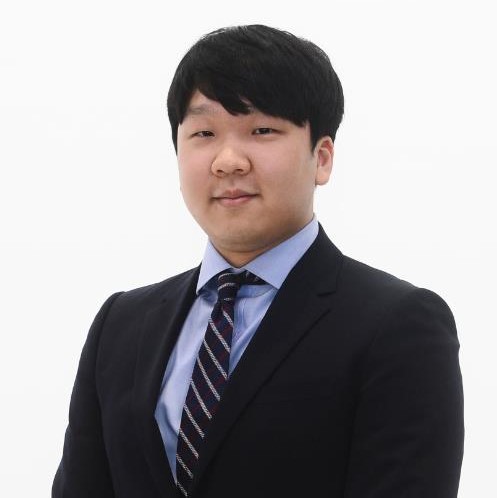[Feature] Broadcasters part ways with old ways of presenting foreign-born TV personalities
By Lee Si-jinPublished : Oct. 25, 2022 - 18:16

Alberto Mondi, Tyler Rasch and Jonathan Yiombi are names familiar to many Koreans, some even more popular than Korean TV stars.
With their deep understanding of South Korea along with their multicultural experiences, they are some of the most sought-after figures when TV shows cast foreigners.
Broadcast programs featuring foreigners were not a major trend at first, and their roles were limited to being surprised or impressed by different aspects of South Korea.
All that changed, however, with local broadcast JTBC’s hit talk show “Abnormal Summit” (2014-17) which featured foreign guests speaking fluent Korean. The show offered a more nuanced and diverse perspective of foreigners living in Korea.
Presenting foreigners as entertainers, economists
Foreigners who starred in Korean TV programs in the late 1990s to the mid-2000s were jokingly teased for their accents when speaking Korean and were often shown being fascinated by Korean culture, which was lesser-known back then.
German actor Bruno Bruni and Chinese-born TV personality Bo Chaing enjoyed local popularity when they were cast in a KBS 1999 variety show whose title roughly translates to “Look into Korea” (1999-2000).
Featuring two non-Koreans struggling to adapt to unfamiliar rural life in the Korean countryside, viewers found their fish-out-of-water experiences of Korean agricultural life entertaining.
American lawyer Robert Holley brought huge laughs to many people with his exaggerated Korean dialect, which is widely used in South and North Gyeongsang Provinces.
While Holley starred in multiple sitcoms, comedies, unscripted shows and commercials from the late 1990s to early 2000s, TV directors, producers and viewers were simply focused on his unique Gyeongsang dialect.
Public broadcaster KBS premiered “Chitchat of Beautiful Ladies” (2006), the first multinational talk show featuring 16 single expats living in Korea.
The show featured more foreigners, but the style of presenting non-Koreans was not much different from several years ago.

The Korean TV show hosts continued to imitate the cast members’ accents to elicit laughs. The overseas TV personalities shared their experiences in Korea, but they were mostly praising Korean fashion, food, men, public transportation and more.
Culture critic Hwang Jin-mi explained that Korean TV shows in the past were more focused on making Korea's rich history and culture look good.
“To be honest, our country was eager to hear compliments, like ‘South Korea is a wonderful, exciting country,’ from Western people. They needed foreigners who could represent the views of Western countries. Their role was nothing more, nothing less than that,” Hwang told The Korea Herald.
From foreigners to neighbors

The long-standing custom seemed entrenched until the early 2010s when terrestrial broadcaster MBC’s “Real Men” (2013) -- a program featuring eight male celebrities experiencing life in the Korean military -- continued to cast non-Korean celebrities. The program casted foreigners such as Australian-born Korean comedian Sam Hammington and singers Henry and Amber, highlighting their struggles with the Korean language in particular.
It wasn't until 2014 when JTBC released “Abnormal Summit” in July that things changed significantly. The show featured a panel of multinational TV personalities discussing various topics including international politics, social disputes, economics and other global issues.
Sharing in-depth discussions and unique opinions on various subject matters, the talk show captivated Korean viewers who likened watching the show to watching a mini United Nations.
Viewers were able to get a glimpse of how non-Koreans think about local and global issues and learn about lesser-known countries through the show.
“Abnormal Summit” topped viewership ratings among variety shows airing in the same time slot for more than several months before the last episode aired in December 2017.
“Contrary to Korean viewers, I was able to enjoy the opinions shared by the Korean people in talk shows like ‘Abnormal Summit’ and ‘7.7 Billion in Love’ (2020). Of course, (hearing) opinions from other countries were a bonus. I believe diversity brings a positive influence in many occasions,” Fabian Zimmermann, an English teacher at a cram school in Daegu told The Korea Herald.
“Though I enjoy broadcast programs featuring foreigners, I was also worried that the opinions shared by the cast might mislead viewers, making them feel that all the people in my country thinks the same way,” a former Japanese exchange student surnamed Watanabe told The Korea Herald.
Attempting to repeat the success of “Abnormal Summit,” several foreigner-centered variety shows followed, such as KBS’ “My Neighbor, Charles” (2015), JTBC’s “Where is My Friend’s Home” (2015), MBC’s “Hey! First Time in Korea?” (2017), “South Korean Foreigners” (2018), tvN’s “K-pop Cultural Center” and more -- creating a new trend in Korean broadcasting.
“Many Koreans seem to be receptive to this change, being curious about how people view their country and wishing to learn about different lifestyles around the globe. Shows featuring foreigners fluent in Korean came at the right time,” culture critic Jung Duk-hyun told The Korea Herald.
According to Jung, showing greater diversity has become an important factor in Korean programs.
“The programs no longer treat non-Koreans as ‘foreigners.’ They are starring in shows as fellow Korean TV personalities. Television programs can offer fresh, interesting ideas with the addition of foreign-born TV personalities,” Jung said.
“As our country is headed toward becoming a multicultural society, the blend of Korean and non-Korean cast members in TV programs is unlikely to change,” he added.
While recognizing the growing number of TV shows featuring foreign-born TV personalities, culture critic Hwang pointed out that Korean viewers need to have a change in perception.
“Numerous Koreans still tend to look down on African and Southeast Asian cultures, making mistakes in expressing their thoughts about cultures they do not know about. Acknowledging and respecting others may be an appropriate way to enjoy this new trend in Korean content,” Hwang said.

















![[More than APT] Residents, architects together design homes](http://res.heraldm.com/phpwas/restmb_idxmake.php?idx=652&simg=/content/image/2024/11/24/20241124050036_0.jpg&u=)
